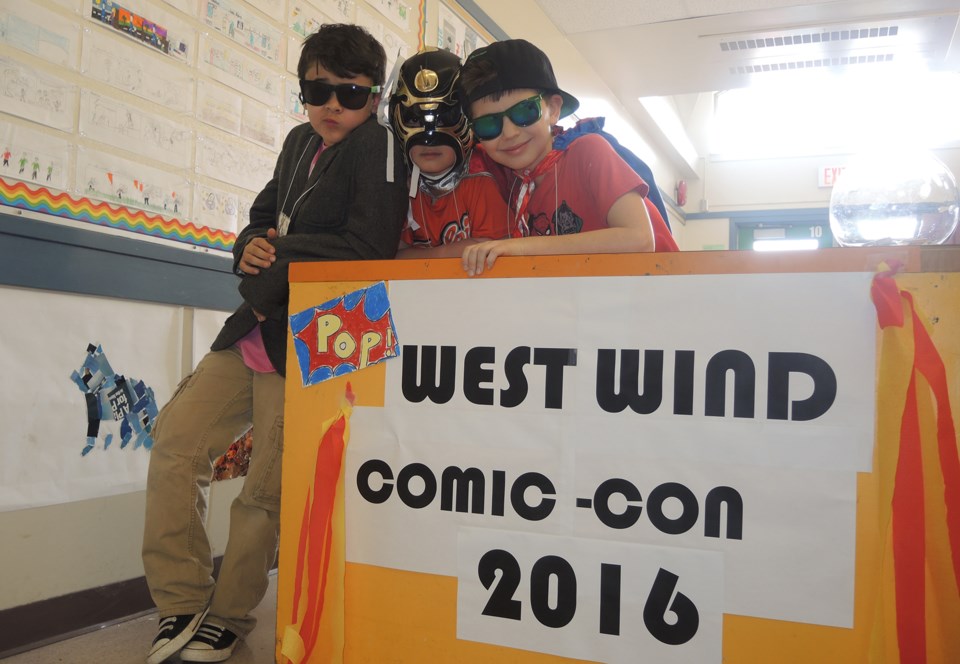Look at that front page. What is it about 10-year-old boys that screams superhero? Even without the cape, they seem so ready to take on the world. And taking on the world is what it’s all about for boys and girls in Mr. Victoria’s class. The Grade 4 teacher is one of those educators who is all about empowering, all about challenging ideas, all about thinking for oneself and taking initiative.
It was in that same spirit that he ditched his original lesson plan when he saw some of his students keenly interested in something else — and the Comic Con was born (page 21.)
Point being, his class is a real time example of what’s being called “inquiry-based” learning.” It’s the new focus of the curriculum, but to hear Mr. Victoria tell it, there’s really nothing new about it. The hallmark of any good teacher is being able to inspire and engage. The new curriculum, which still includes standardized testing, gives teachers more leeway to tailor lesson plans to harness students’ energy and imagination, while still achieving the desired learning outcomes.
Which brings me to the question, what are those desired outcomes?
Today’s feature also highlights the fact our board of education is launching a policy review. Among other things, it will revisit policies pertaining to commercialism within the school. Currently, the board’s policy basically states public schools should be supported with public funds; private companies and corporations have no business there, except for in very particular circumstances.
However, that policy is now being called “out dated.” It seems that as public funds have dwindled, (and the BC Liberal’s recent budget won’t help matters there) so may be the board’s resolve to keep young students insulated from corporate influence — after all, the odd Pepsi poster or Coke vending machine could probably buy a lot of books and fund a lot of field trips. The issue came up last year when Chevron offered to finance some school projects in the Lower Mainland in what they called a Fuel Your School promotion.
I’m sure the money was tempting, but would the major oil producer fund a project on electric cars? As they say, he who pays the piper calls the tune. Even if it did, the company’s primary goal is building its brand.
One of the key aims of education is fostering critical thinking. In a subtle yet profound way, critical thinking is at risk as corporate interests seep into the learning environment. We need our superheroes, and if they are to take on the world they need to be treated, not as consumers, but as our hope for new ways of thinking and, perhaps, challenging those very consumer values to which many of us have become blind. Now, there’s a learning outcome worthy of a cape.



